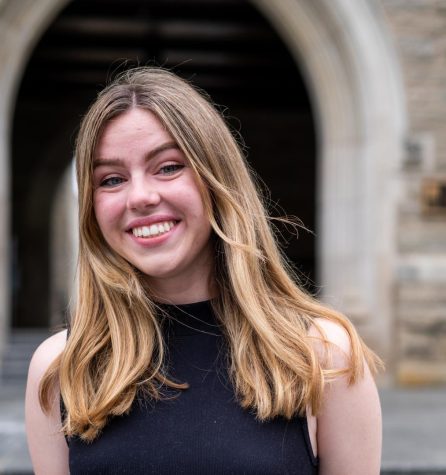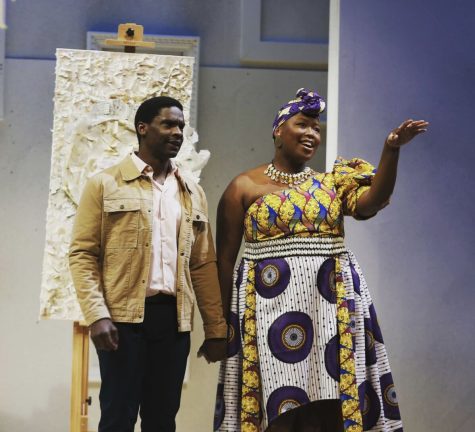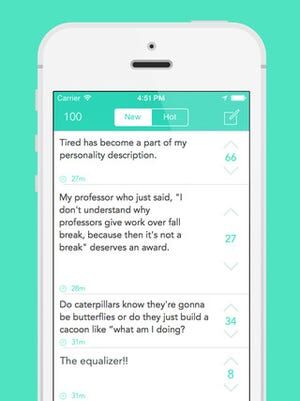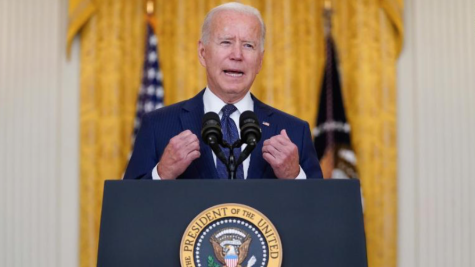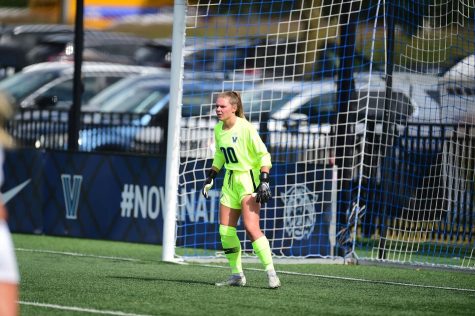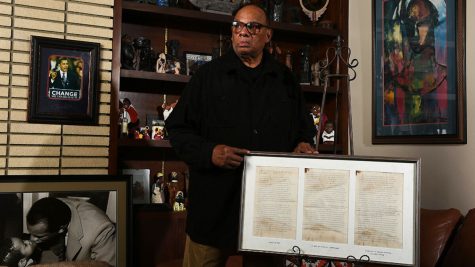Students Petition to Replace Phone System
April 16, 2021
University students have likely seen the GAI-Tronics phone box systems within the residence halls. These, along with the blue light call boxes, are the University’s most efficient resources for quickly getting in touch with public safety in the case of sexual assault or other emergencies. However, a number of students are convinced these are not enough, arguing for the phone box systems to be replaced with touchscreen technology instead.
On Thursday, April 8, SGA Class of 2024 Senator Thomas Dessoye started a petition via Change.org entitled “Replace Outdated Pub Safe Phone System with Accessible, Touchscreen Technology.” The petition, which advocates for “a more enhanced, accessible touch screen system with resources preprogrammed into the technology to replace the phone boxes,” amassed more than 245 signatures within the first 72 hours.
The petition begins by acknowledging the four most recent cases of sexual violence on campus and the necessity for the University to take meaningful action to address them.
“Our college is being influenced by the tragedy of senseless sexual violence, and our students deserve better,” the petition states.
Although there are 24 phone boxes on South Campus, 27 on Main and 32 on West, these phone boxes are being used less and less to report sexual assaults and other violence. Instead, people are choosing to use mobile-friendly ways, including the Nova Safe app, SAVUR, the SARC hotline and calling the Health Center.
“Blue light phones, pre-dated cell phones, are used less and less frequently on college campuses,” Chief of the Department of Public Safety David Tedjeske explained. “We receive very few calls on Blue Light phones and have found people using the Nova Safe app more and more.”
The petition raises issues with the phone system’s functionality: it requires the user to state their identity out loud, potentially making them even more vulnerable to their attacker. Touchscreen technology would allow someone to “discreetly type in their report for help and immediate assistance” especially in the case that “their cellular device is dead, meaning that they cannot access [resources] such as Nova Safe from their phone.”
The petition also draws attention to the concerning placement of the phone systems, with certain floors of residence halls lacking them. It explains that places lacking in these phones include the second floor of McGuire Hall, the second and third floors of Simpson, the first floor of Fedigan and the third floor of Delurey. Even certain halls that have one on each floor, such as St. Mary’s and Stanford, have far too many residents for this to be sufficient.
“If this is how Villanova will continue to choose to protect its students, then it is inadequate, ineffective and almost obsolete,” the petition states.
The proposed plan, on the other hand, intends to provide every floor of each resident hall access to the touchscreen technology.
The petition ends by stressing the importance of addressing sexual violence at the University.
“Sexual transgressions do not deserve to have a consistent pattern on a campus which promotes truth, unity and charity,” it says. “With a new system, sexual violence will not end, but it will at least save more students from trauma and violence.”
The petition is co-sponsored by SGA Mission and Social Justice Committee Members: Former Athletics Senator Joseph D’Antonio, Sciences Senator Carlos Garriga, Disability Services Senator Liam Holland and Chairman and Health Promotion Senator Derek Lattmann. It is also sponsored by Athletics Senator Tiane Parris, VSB Senator Elizabeth Vaughn, Engineering Senator Andrew Kline, Class of 2024 Senator Preston Muñoz and Class of 2023 Senator Jose Garcia.
With more than 245 signatures, Dessoye is pleased with the student body’s response to the petition.
“I think it’s truly courageous that there are members of the Villanova community who want to see effective, positive change on campus,” Dessoye said. “It is not easy to have gained that much support since replacing the current phone box system is not as prevalent of an issue, such as a petition to mandate frequent COVID-19 testing on campus, but I believe it is the right step for future generations of incoming students.”
When asked about the University’s response, Dessoye explained that he has not yet heard anything from the school administration. However, he credits Title IX Coordinator Ryan Rost, the SARC team and Tedjeske with working with him on the issue.
Tedjeske, however, does not support moving forward with the idea.
“Having the support of the student population helps make the need for change tangible,” Dessoye said. “It was the students who were responsible for creating the SAVUR app at Villanova, and I believe it is the students who have an important role in influencing our campus with this petition. To have a community that is willing to support change that can help reduce the frequency of sexual assault on our campus. To… know there are students out there who equally care about this issue ignites Villanova with hope, passion and prosperity.”

